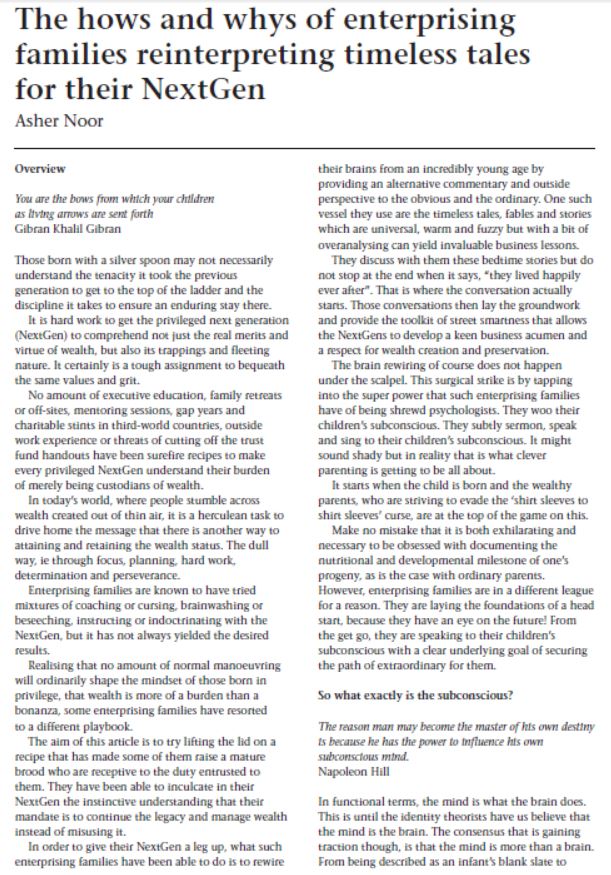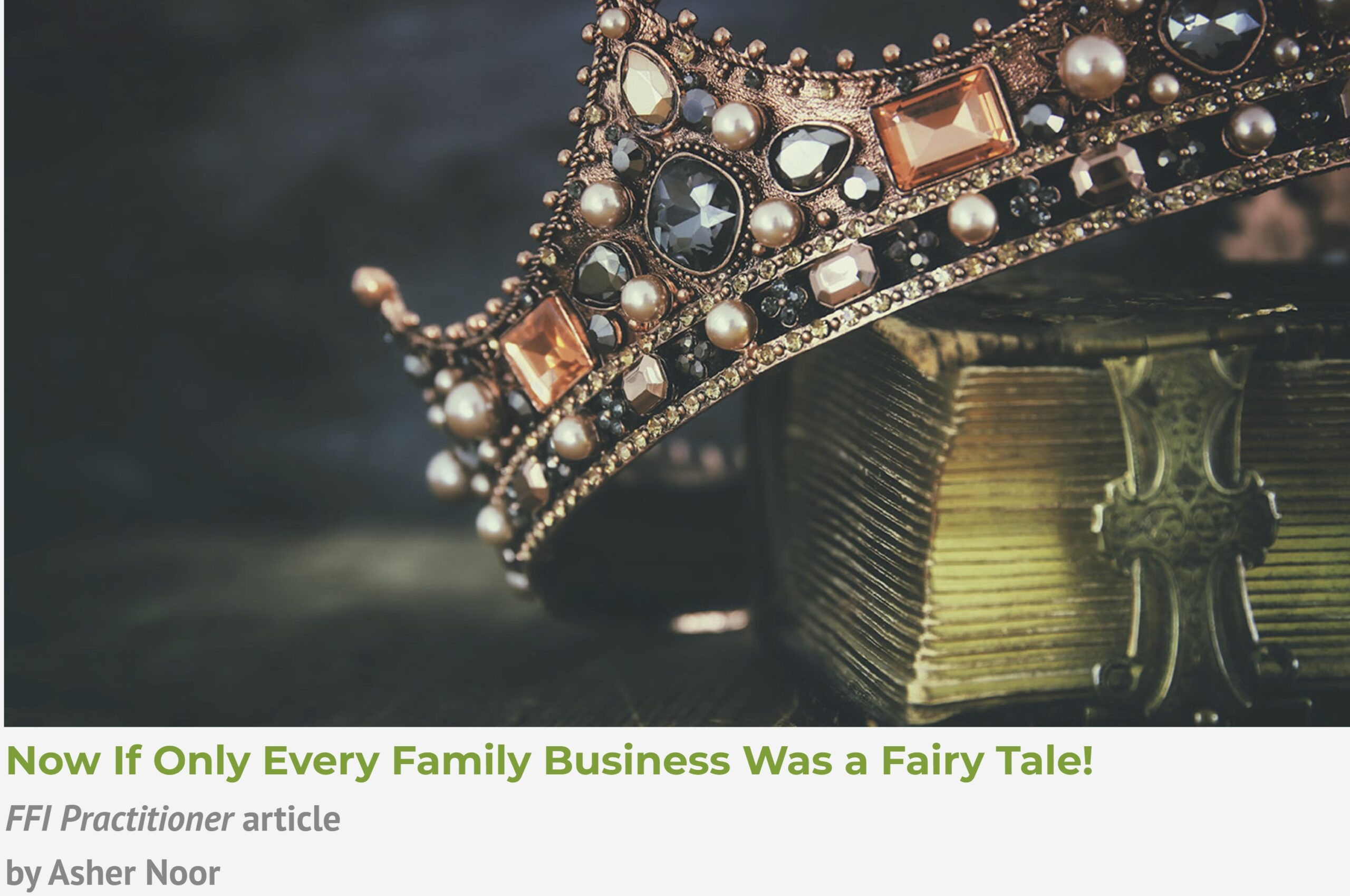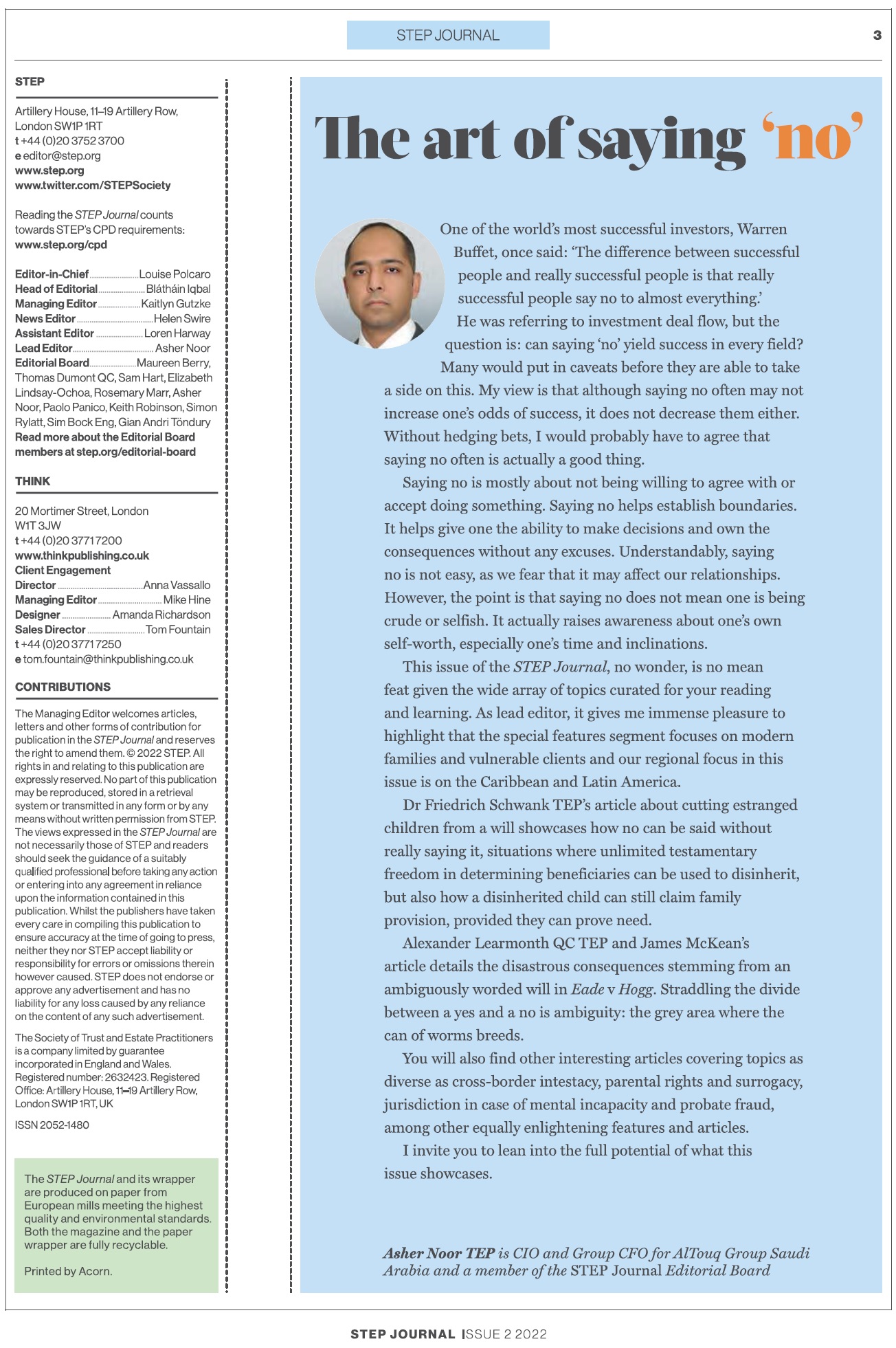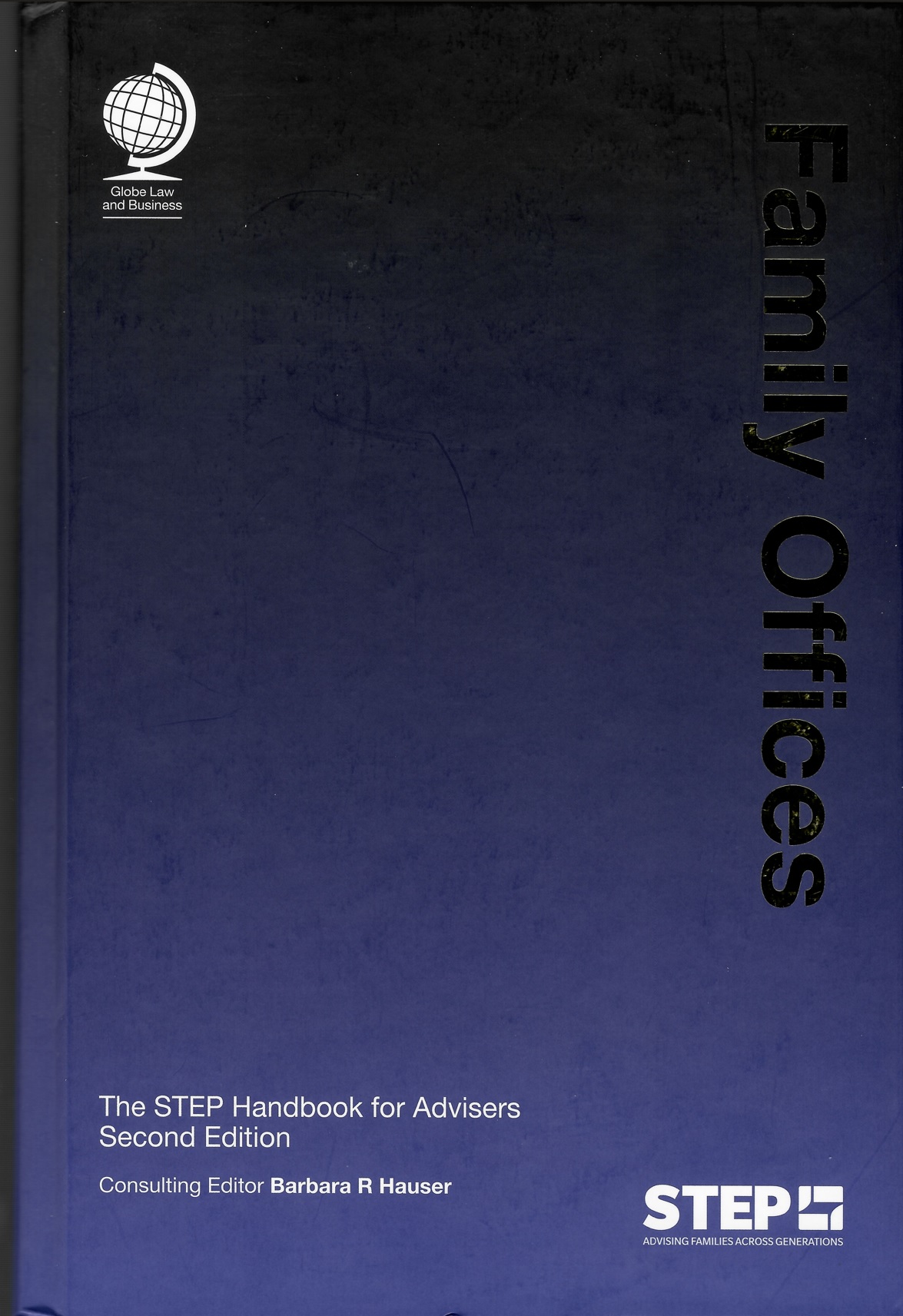Overview
“You are the bows from which your children
as living arrows are sent forth” – Gibran Khalil Gibran
Those born with a silver spoon may not necessarily understand the tenacity it took the previous generation to get to the top of the ladder and discipline it takes to ensure an enduring stay there.
It is hard work to get the privileged next generation (NextGen) to comprehend not just the real merits and virtue of wealth, but also its trappings and fleeting nature. It certainly is a tough assignment to bequeath the same values and grit.
No amount of executive education, family retreats or off sites, mentoring sessions, gap years and charitable stints in third-world countries, outside work experience or threats of cutting off the trust fund handouts have been surefire recipes to make every privileged NextGen understand their burden of merely being custodians of wealth.
In today’s world, where people stumble across wealth created out of thin air, it is a herculean task to drive across the message that there is also another way to attaining and retaining the wealthy status. The dull way i.e. through focus, planning, hard work, determination and perseverance.
Enterprising families are known to have tried with the NextGen, mixtures of coaching or cursing, brainwashing or beseeching, instructing or indoctrinating, but it has not always yielded desired results.
Realizing that no amount of ordinary maneuvering will ordinarily shape the mindset of those born in privilege; that wealth is more of a burden than a bonanza, some enterprising families have resorted to a different playbook.
The aim of this article is to try lifting the lid on a recipe that has made some of them raise a mature brood who are receptive to the duty entrusted upon them. They have been able to inculcate in their NextGen the instinctive understanding that their mandate is to continue the legacy and manage wealth instead of misusing it.
In order to give their NextGen a leg up, what such enterprising families have been able to do is to rewire their brains from an incredibly young age by providing an alternate commentary and outside perspective to the obvious and the ordinary. One such vessel they use are the timeless tales, fables and stories which are universal, warm and fuzzy but with a bit of overanalyzing can yield invaluable business lessons.
They discuss with them these bedtime stories but do not stop at the end when it says, “they lived happily ever after”. That is where the conversation actually starts. Those conversations then lay the groundwork and provide the tool kit of street smartness that allows the NextGen’s to develop a keen business acumen and a respect for wealth creation and preservation.
The brain rewiring of course does not happen under the scalpel. This surgical strike is by tapping into the super power that such enterprising families have of being shrewd psychologists. They woo their children’s subconscious. They subtly sermon, speak and sing to their children’s subconscious. It might sounds shady but in reality, that is what clever parenting is getting to be all about.
It starts when the child is born and the wealthy parents, who are striving to evade the ‘shirt sleeves to shirt sleeves’ curse, are at the top of the game on this.
Make no mistake that it is both exhilarating and necessary to be obsessed with documenting the nutritional and developmental milestone of one’s progeny, as is the case with ordinary parents. However, enterprising families are in a different league for a reason. They are laying the foundations of a head start, because they have an eye on the future! From the get go, they are speaking to their children’s subconscious with a clear underlying goal of securing the path of extraordinary for them.
So what exactly is the subconscious?
“The reason man may become the master of his own destiny
is because he has the power to influence his own subconscious mind.” – Napoleon Hill
In functional terms, the mind is what the brain does. This is until the identity theorists have us believe that mind is the brain. The consensus that is gaining traction though, is that the mind is more than a brain. From being described as an infant’s blank slate to Freud defining it as a hydraulic and electromagnetic system, in today’s tech world the relatable way would be to call it a super computer.
Our mind is meant to absorb all sorts of information which comes its way, repurpose it into knowledge and then utilize that knowledge for necessary action.
The mind has been dissected into various components, categories or parts. In simple terms, there are two basic areas. The conscious mind and the subconscious mind. The conscious mind is the familiar part that we are aware of. The subconscious mind is the data bank with an unlimited storage and retrieval option that stores beliefs, values and past experiences. If the conscious mind is the gardener planting seeds, the subconscious mind is the fertile soil where those seeds germinate.
It is not only the genetic similarities with parents that make their children relatable. The children are sponges when it comes to imitation. They soak up the behaviors and habits and will follow parental examples more often than they follow their advice.
Ordinary parents do significant damage to their children’s subconscious with careless choice of words or actions. That radically influences the young mind, which could either fail to understand the right from the wrong and could also lead to lack of confidence or trust issues etc.
As they say, ordinary parents worry that their children are not listening to them. What they should actually be worried about is that the children are always observing them and keen to mimic – consciously and subconsciously. It is the early formative years that demand the most from parents.
Enterprising families have thus realized that it is easier to create than restore. It is in the formative years that most subconscious beliefs and habits are hard coded in minds. There is no filter to judge right from wrong, there is no critical editing and judgement and all gets a place in the infinite repository.
Parents might practice what they preach to satisfy the imitation aspect of raising children who like to copy more than they care to listen. However, the enterprising families who are keen on giving a head start to their NextGen, take the pain early on, to rewire the subconscious. Their thesis is that in later life their children can then act and react in the blink of an eye in ways productive to their well-being by tapping into what they have helped store in their subconscious.
Timeless Tales – subconsciously guiding NextGen’s
A timeless tale, or for that matter any tale, will have components of a protagonist, a villain, a plot, a twist and then a solution that makes one feel good. With timeless tales there is always a bit of improbability interspersed with ingenuity and incredulity to deliver an interesting closure.
Timeless tales might be a good method to put the kids to sleep, but as we know in later life what really fires up our imagination and success are the dreams that stop us from sleeping.
Enterprising families do not just read these timeless tales to their children to end with a “they lived happily ever after” solution as an antidote for all the complexities in life. These parents are able to provide a different perspective and they keep talking about it in such a way that it really does seep into the NextGen’s subconscious. For that, they need to repeat these timeless tales, with their interpretation often and convincingly enough until for their NextGen that becomes the real aftermath and is parked in their subconscious as the undeniable truth.
Given how useful these timeless tales can be, in later life, for the big decision-making, the NextGen’s revert to let the subconscious decide based on the way these timeless tales were interpreted and explained to them.
In this article, we will see how morals, conclusions, interpretation and context in some of these timeless tales are distilled by the enterprising families. This alone is worth its weight in gold compared to the learnings from any case study at an Ivy League school. The learnings from the case studies may not be around forever. The lessons gleaned and hammered into the subconscious from these timeliness tales, are lifelong.
Timeless tales will come back to the NextGen repeatedly all during their lifetime from myriad of sources. Enterprising families preempt those repetitions where it reduces it to the lowest common denominator of good vs evil. They are helping to immunize their NextGen from mediocrity. While even the lowest common denominator moral offerings are useful, worthwhile and relevant but the obsession with enterprising families is to secure a head start for their NextGen.
The skeptic will always say Bah Humbug!
Detractors will always lean on Ebenezer Scrooge to blast a Bah Humbug. Their main argument is that the timeless tales have a notion of magic and a knight in shining armor coming to the rescue while the real world is devoid of it. They believe that tales of yester years may turn the NextGen into softies. Their gripe is that rags to riches does not happen, simply because they have yet to be beneficiaries of that. However, the reality is rags to riches happens daily. Most likely, vice versa too.
Fairy tales can trigger innovation because you can create something out of nothing where there are no barriers to imagination and brings magic into our daily lives. It reinforces courage. Data cannot rally the troops. Stories can.
Telling tales is a powerful communication. Warren Buffet believes communication is key otherwise it’s as pointless as winking in the dark to attract attention.
Timeless tales – wrapped in new layers of exploration
Below is a sample of some of the stories I have heard enterprising families narrate to their NextGen with their own vested wrapper of reasoning and analysis. It is with this new lens that apparently the NextGen find a different perspective and head start in life, especially in terms of leadership, entrepreneurship and wealth custodianship. I am just the storyteller here.
Emperor’s New Clothes
The emperor is conned into donning a non-existent suit that is invisible to the ‘hopelessly stupid’. Fearing to come across as stupid, neither the emperor nor his courtiers question the obvious, until a child cries out, “But he isn’t wearing anything at all!”
The emperor parading about in a suit that is not just invisible but also non-existent, has a lot more to offer than embarrassment, for the emperor and his sycophants. There is certainly more to it than what meets the eye.
It can be hypothesized from the tale that one should tell the truth as one sees it, without being fearful of the backlash. A similar real world example would probably be Jack Welch calling shareholder value “the dumbest idea in the world.” Not sure if anyone else was as blunt and forthcoming about a mantra, everyone else swears by. Honest communication and feedback is key to the success of an enterprise. If something is wrong or does not add up, one should still speak up if no one else does. Age does not matter. A young person might know better than an adult might. Speak up if one believes they have something important to say. Vanity can lead to spectacularly poor decision-making.
Enterprising families, however, have more varied and worldly interpretations to offer their NextGen. Oft repeated, these then morph from conjecture to certainties, ensconced in their subconscious. In later life, the NextGen then do not fall into the trap of the herd mindset. Some of those varied and worldly interpretations include:
- Governments lie through their teeth with promises that they know they can never keep. Corporations speak of serving all stakeholders while singularly focused on their selfish agendas. People live fake lives on borrowed money that they cannot afford to repay, to impress neighbours, friends, and strangers. They are all wearing the invisible clothes, but collectively applaud, encourage and support the vicious circle of make-belief that is self-serving. Those who can see through the charade are still the ones that end up being criticized.
- Do you have someone in your circle who will whisper in your ear that “Emperor, you are not wearing anything.” That kind of advice is something that usually money cannot buy. We are all emperors of our lives and in that, we need to beware of obsequious yes-men, as they do more harm than good.
- Grownups routinely do a group lie by turning a blind eye to the obvious truth. They usually do so by ignoring bad news and posturing with the status quo. Raise issues of seeing things as they are and not necessarily, as they are presented (even if vouched for by everyone).
- The procession does not have to go on. Good leaders stay the course but great leaders are not shy in making U-turns. It is better to admit mistake and reverse the course than continue parading about ones folly.
The above is an excerpt from the essay that Asher Noor wrote.
The full essay by Asher Noor, was first published in the Globe Law & Business – The International Family Offices Journal Volume 5 of 2020. The Journal is available for subscription.
https://www.globelawandbusiness.com/journals/the-international-family-offices-journal




